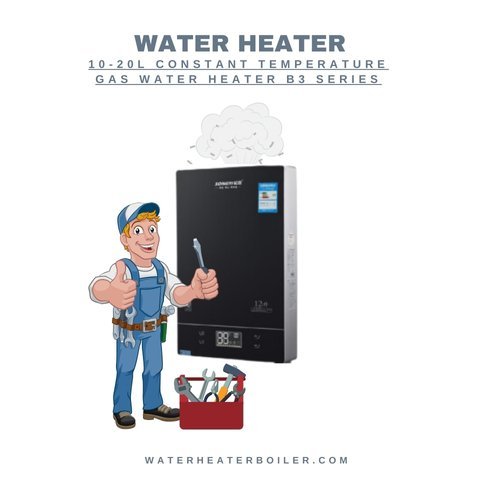Your Guide to RV Water Heaters: Enjoy Comfort and Convenience on the Road
This guide will delve into the features of RV water heaters, their advantages, how they work, and essential maintenance tips to keep them running smoothly.

When traveling in an RV, having a dependable source of hot water can significantly enhance your camping experience. RV water heaters, particularly gas-powered models, provide efficient and convenient hot water for a variety of needs—from showers to dishwashing. This guide will delve into the features of RV Water Heater, their advantages, how they work, and essential maintenance tips to keep them running smoothly.
Benefits of RV Water Heaters
-
Instant Hot Water: One of the main advantages of RV water heaters, especially tankless models, is their ability to provide hot water on demand. This means you can enjoy a warm shower or clean dishes without the wait associated with traditional tank heaters.
-
Space-Saving Design: RVs often have limited space, making compact appliances a necessity. RV water heaters are designed to fit efficiently within confined spaces, allowing you to optimize the available area in your vehicle.
-
Energy Efficiency: Many RV water heaters are designed to be energy-efficient, helping to reduce fuel consumption. Gas models tend to be more economical than electric counterparts, especially in areas where propane is readily available.
-
Reliability in Remote Locations: One of the great things about RV water heaters is their ability to function even in remote areas where electricity might not be accessible. As long as you have a supply of propane, you can enjoy hot water regardless of your location.
-
Versatile Installation Options: RV water heaters can often be installed in various configurations, accommodating different RV layouts. This versatility allows for customized setups that suit individual needs.
How RV Water Heaters Work
RV water heaters operate on a straightforward principle:
- Ignition Process: When hot water is requested, the system ignites gas in the burner assembly. In tankless models, the system heats the water as it flows through the unit.
- Heat Generation: The burner heats the water, providing a consistent supply of hot water on demand.
- Water Delivery: Once heated, the water is distributed throughout the RV, ensuring you have hot water ready for showers, cooking, or cleaning.
Maintenance Tips for RV Water Heaters
To ensure your RV water heater operates efficiently, regular maintenance is key. Here are some essential tips:
-
Regular Inspections: Have your water heater inspected annually by a qualified technician to identify any potential issues. This proactive approach can help prevent costly repairs down the line.
-
Flushing the System: Sediment buildup can hinder performance and efficiency. Flushing the tank periodically helps remove any buildup and prolongs the life of your water heater.
-
Check for Leaks: Regularly inspect the water heater and surrounding area for leaks or signs of corrosion. Early detection can save you from more significant problems later on.
-
Monitor Propane Levels: Always keep an eye on your propane supply. Running out of propane can leave you without hot water, so refill as necessary, especially during extended trips.
-
Adjust Temperature Settings: Set the water heater thermostat to an optimal temperature, typically around 120°F (49°C). This setting balances comfort and energy efficiency, providing hot water without excessive energy consumption.
Conclusion
RV water heaters are essential for ensuring comfort and convenience during your travels. With their instant hot water capabilities, energy efficiency, and compact designs, they are ideal for enhancing your RV experience. By understanding how they function and adhering to maintenance best practices, you can ensure that your RV water heater provides reliable hot water for all your needs, allowing you to focus on enjoying your adventures.
What's Your Reaction?
















